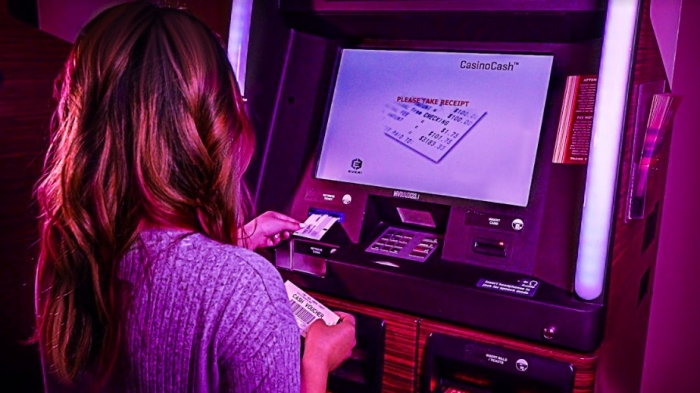I
n an attempt to cut back on human-to-human interactions, a hazard in the age of COVID-19, hotel-casino operators in Las Vegas have accelerated their adoption of automated technology.
“There’s no doubt in my mind that COVID-19 is a catalyst for change,” Applied Analysis economist Jeremy Aguero said. “(The pandemic has) required businesses that need to adapt to look at every point of human interaction and ask: Can it be automated?”
Automation can strengthen business’ efforts to keep guests and staff safe, but industry watchers also say it will lead to major shake-ups in Southern Nevada’s workforce, the Las Vegas Review-Journal reports.
Experts forecast more automated and self-service technology will enter casinos as the pandemic stretches on. Self-check-in kiosks, robotic bartenders and ordering tablets at restaurants are just a few examples.
At MGM Resorts International’s Bellagio, guests can skip interacting face to face with a front-desk worker and use mobile check-in instead.
MGM spokeswoman Callie Driehorst said the company accelerated the rollout of touch-free technology like mobile check-in and digital keys in recent months, “allowing for physical distancing in addition to enhanced guest experience.”
“Digital initiatives in the planning stages became even more important in the wake of the pandemic,” she said. “Also in response to the health crisis, we launched initiatives such as digital menus and restaurant queues, all of which are helping us to create safer environments for employees and guests.”
A spokesman for Caesars Entertainment Corp. said the company has done away with restaurant menus in response to health and safety concerns brought about by the pandemic, and diners can see the menu on their phones instead by using a QR code.
The technology “may continue to be deployed when conditions return to normal,” he said.
Wynn Resorts Ltd. spokeswoman Deanna Pettit-Irestone said the company has added several new digital technologies since the pandemic began, including check-in kiosks; a digital resort directory sent via text or QR code; an online food and drink ordering system at fast-casual restaurants; and tap-and-pay capabilities, digital menus and an online reservation system at all restaurants.
Pettit-Irestone added that mobile pre-check-in will be added in the coming weeks.
“Wynn’s new automated technologies provide more options for our guests to curate their visit while controlling the level of interaction they have with others,” she said.
Station Casinos has implemented electronic table games at six properties in the midst of the pandemic, limiting touchpoints between dealers and gamblers who want to play craps, baccarat, roulette, or blackjack.
The games still use dealers and cards, but players use their own betting terminal screen instead of chips to place a wager.
The changes were made with the “safety and entertainment” of guests in mind, according to the company’s website.
Resorts’ adoption of more technology won’t widely disrupt jobs on the Las Vegas Strip just yet.
Culinary Local 226 and Bartenders Local 165 have agreements with a handful of casino operating companies — including Caesars and MGM — regarding automation and worker retention.
The five-year contracts, signed in 2018, require companies to take a series of steps regarding any new technology implementations, such as holding negotiations and giving notice on new technology; offering employees free training on how to use the new technology; providing free job training if the technology creates jobs and offering retention bonus packages if a worker is laid off because of new technology.
“Companies introducing technology to eliminate jobs is not new. Hospitality jobs will continue to change and evolve as they always have,” union spokeswoman Bethany Khan said.
Aguero is confident that automation is coming — “businesses are either going to adapt, or perish,” he said — but he doesn’t believe all hospitality jobs are at risk.
He said success of Las Vegas’ hospitality industry relies on three main pillars: its 150,000 hotel rooms, operating one of the busiest airports in the country and having roughly 300,000 leisure and hospitality employees dedicated to serving visitors.
“I’m just not ready to believe that third … leg of the stool is any less relevant in July of 2020 than it was in July of 2019,” he said. “Customers like human interaction.”



